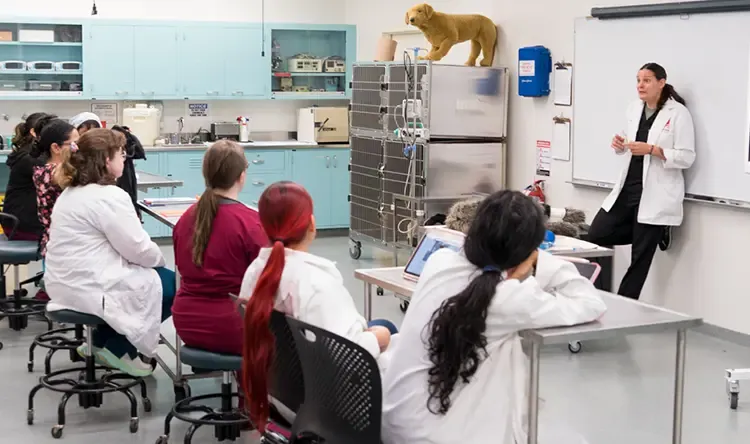The Rise of Community Colleges
Education has always been the key to success, but traditional four-year universities are becoming increasingly expensive and out of reach for many students. This is where community colleges come into play. Offering affordable, flexible, and high-quality education, community colleges are reshaping the way people approach learning and career building. In this article, we explore how these institutions are changing the education system and why they are a great choice for students today.

1. Affordable Education for Everyone
One of the biggest advantages of community colleges is their affordability. Many students struggle with the high cost of university tuition, but community colleges provide a cost-effective alternative.
- Lower Tuition Fees – On average, community-colleges charge significantly less than universities, helping students save thousands of dollars.
- Reduced Student Debt – Students graduating from community-colleges often have little to no student debt compared to university graduates.
- Scholarships and Grants – Many community-colleges offer financial aid, grants, and scholarships to help students manage expenses.
2. Flexible Learning Options
Community colleges are designed to accommodate a diverse range of students, including working professionals, parents, and individuals looking for a career change.
- Online and Evening Classes – Many community-colleges offer flexible class schedules, including online and evening courses, making it easier for students to balance work and education.
- Part-Time and Full-Time Options – Students can choose between part-time or full-time studies based on their availability and commitments.
- Rolling Admissions – Unlike traditional universities, many community-colleges have multiple enrollment periods throughout the year, allowing students to start whenever they are ready.

3. Career-Focused Programs and Job Readiness
Unlike traditional universities that emphasize theoretical knowledge, community-colleges focus on practical, job-oriented programs that prepare students for the workforce.
- Job-Specific Training – Courses are tailored to meet the demands of specific industries like healthcare, technology, business, and skilled trades.
- Internships and Apprenticeships – Many programs include hands-on training through internships, giving students real-world experience before they graduate.
- Industry Partnerships – Community-colleges collaborate with local businesses and industries to provide students with job placements and networking opportunities.
4. Smaller Class Sizes and Personalized Learning
A major drawback of large universities is overcrowded classrooms, which can make it difficult for students to get individual attention from professors.
- Better Student-Teacher Interaction – Community-colleges have smaller class sizes, allowing for more personalized instruction and better student engagement.
- Stronger Academic Support – Students have access to tutoring services, career counseling, and mentorship programs to help them succeed.
- Inclusive and Supportive Environment – Community colleges prioritize student success by providing resources for learning disabilities, mental health support, and financial guidance.
5. Pathway to Four-Year Universities
Many students use community colleges as a stepping stone to a four-year degree.
- Transfer Programs – Many community colleges have articulation agreements with universities, allowing students to transfer credits seamlessly.
- Cost-Effective Transition – Students can complete their general education requirements at a lower cost before transferring to a university.
- Higher Acceptance Rates – Students who start at a community college often have a better chance of getting accepted into competitive universities after proving their academic abilities.

6. Catering to Adult Learners and Career Changers
Education is not just for young students fresh out of high school. Community colleges are helping adults return to education to improve their career prospects.
- Skill Development for Career Growth – Working professionals can upskill or reskill to stay competitive in the job market.
- Certification and Short-Term Programs – Many community colleges offer specialized certifications that take months instead of years to complete.
- Support for Working Adults – Programs are designed with flexible schedules, childcare facilities, and career counseling services.
7. Promoting Diversity and Inclusivity
Community colleges welcome students from all backgrounds, making higher education more accessible for underrepresented groups.
- Serving Minority Communities – Many community colleges have a diverse student population, providing opportunities for students from different cultural and economic backgrounds.
- Affordable Education for First-Generation Students – Community colleges make it easier for first-generation college students to access higher education without financial burdens.
- LGBTQ+ and Disability Support – Many institutions offer support groups, scholarships, and resources for LGBTQ+ students and individuals with disabilities.

8. The Role of Technology in Community College Education
Technology is playing a significant role in making education more accessible and effective at community colleges.
- Online Learning Platforms – Many community colleges use advanced e-learning platforms for virtual classes.
- Hybrid Learning Models – Students can choose a mix of in-person and online courses for maximum flexibility.
- Tech-Driven Skill Development – Programs in coding, cybersecurity, and digital marketing are becoming more popular, ensuring students are job-ready for the digital age.
Conclusion: The Future of Community Colleges
Community colleges are no longer just an alternative to universities; they are becoming a first-choice option for many students seeking affordable, flexible, and career-focused education. With increasing financial challenges and changing job market demands, these institutions are playing a critical role in shaping the future of education. Whether you’re a high school graduate, a working professional, or someone looking to change careers, community colleges offer the education, skills, and opportunities needed to succeed in today’s world.






